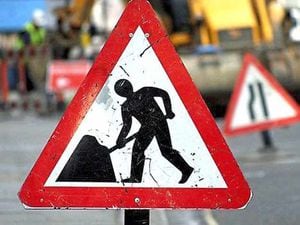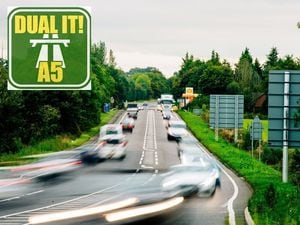Star comment: Speak out for better roadways
When engineers and politicians consider improvements to roads along the English and Welsh border, they must put aside all conflicts of interest.

The A5 and A483 must be considered in a spirit of co-operation. Party political imperatives and issues surrounding national priorities must not muddy the waters as a cross-party, cross-border consensus is reached.
Those responsible for improvements to the infrastructure must look at what is best for the region and not dwell on Labour versus Conservative, England versus Wales.
It is appears that such a modus operandi is likely. For there appears to be a willingness among politicians on both sides of the border to recognise the importance of upgrading the A5 particularly, which is a key route.
Click here to sign our petition to dual the A5
We now need the Government in Westminster to listen to the case that is being put forward to dual the road.
Of course it is not just the A5 that requires improvement. The A483 is also of key importance both as it heads towards Welshpool and Newtown and as it leaves Shropshire and heads towards Wrexham.
So far, more than 3,600 have joined our campaign which we will present to the Government but we need more people to sign up so that we can spell it out as clearly as possible just how important an issue this is. So, to be clear, we would urge all readers to make their voice heard. We have the ability to make a difference and that will become easier if there is mass engagement among the local population.
The business case for improvements to both roads is clear. Yet a sense of realism is necessary as we accept that many other local authorities and concerned groups compete for finite resources. Our local schemes are not the only ones before the Government and so we all have a sense of duty to do what we can to promote the works on our region's behalf.
See our full 'Dual the A5' campaign coverage here
Local MPs have led the way by demanding that there are no borders when it comes to creating better roads. And others involved in the process must follow that lead as they bring about change.
Calls for improvements have gone on for more than three decades and progress is finally in sight. As a region, we must be pro-active, collegiate and co-operative as we bring the schemes across the line.
We will all benefit if improvements go ahead. We must play our part.





